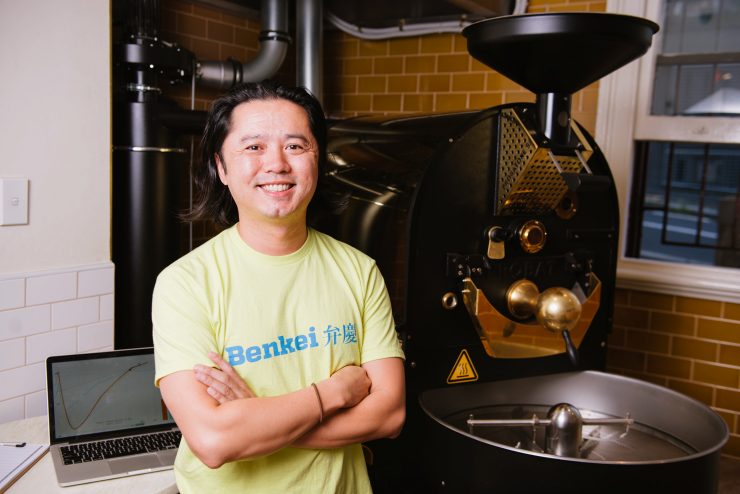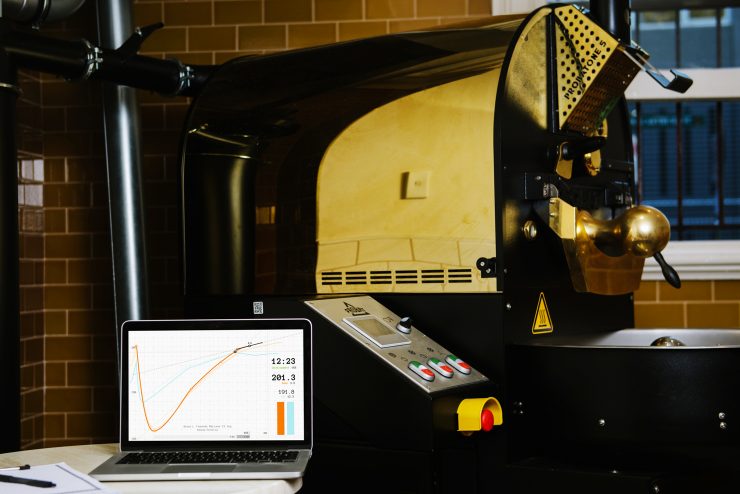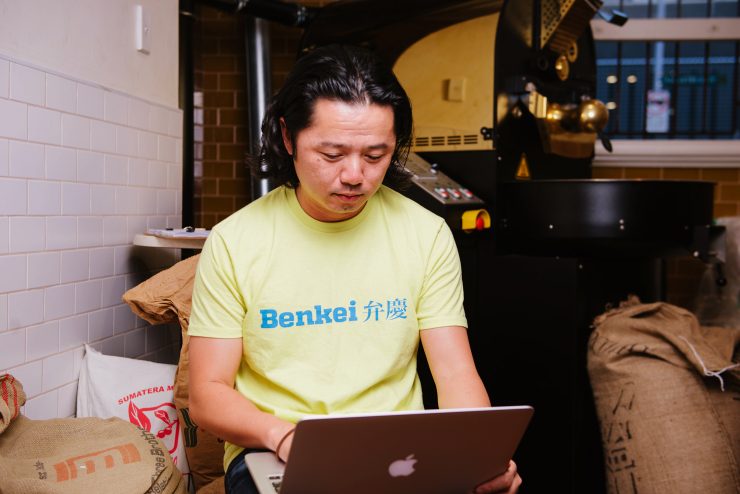
Ed Kong of Benkei
Across the specialty coffee industry, new technology is making waves. For coffee roasters specifically, there’s been an explosion in innovation of roasting software, exemplified by the likes of Cropster and Artisan, that tracks and collates data in real time in easily accessible templates that ostensibly allow roasters to isolate and build on the best roast profiles.
The method by which this end result is reached is inherently scientific—by developing a compendium of precisely tracked roast curves, eventually, roasters should be able to narrow down which charge temperature, roast time, crack temperature, and so on, lead to the best roasts.
The key word above is eventually. Gathering enough data to make a difference in a roast takes time—and that’s without taking into account the additional time it takes to analyze that data in order to identify the best approach for a given coffee. Add to this the fact that the slightest change in humidity or temperature can make all this work useless, resulting in a subpar result on the cupping table despite a replicated reference curve.
Enter Benkei, a new machine-learning roasting software that creator Ed Kong believes will solve these problems. Set for beta launch by August of this year, Benkei’s purpose is consuming large amounts of raw roasting data and making them immediately useful to a roaster looking to optimize her roast, regardless of coffee or roasting apparatus.

“Current software does not offer enough value,” Kong says. “Software can be painfully hard to set up and in a lot of cases just gets in the way while roasting. In roasting, there are so many variables, from the machine, the bean, and the environment. Almost all of them are unique. No human could untangle each variable. But machine learning can. Machine learning allows us to take observations and generate mathematical models to make predictions.”
The more data fed into Benkei, the more accurate its predictions.
Coming from a career in the tech industry, Kong observed firsthand how machine learning was able to crack problems that humans couldn’t, not only by sorting through data but by reaching best conclusions regarding how that data ought to be used.
“Its learning increased so quickly we couldn’t keep up,” Kong says. Benkei aims to “predict how your roaster is going to perform with a given coffee” thanks to the host of data it’s consumed and deciphered. And there’s no fear of losing trade secrets or intellectual property by using the software.

“The important distinction is we are not sharing data. I won’t know your exact profiles. I won’t know you even roasted a particular coffee,” Kong explains. “We want to provide invaluable analysis and insights that will improve your roast. What we are sharing is our combined knowledge in the form of a mathematical model. And we all benefit by having a much fuller and complete picture.”
There will no doubt be many who shudder at the thought of robot roasters invading the specialty coffee industry, but for Kong, resistance is, well, futile.
“The reality is, the technology is already here. The choice for us is how we respond. And how can we shepherd technology to be our ally and partner,” Kong says.
And new technology doesn’t have to be scary, but could, in fact, be transformative for the entire industry.
“We talk about transparency and fairness in coffee a lot. But the reality is that producers have poor access to tools, training, and data. While consumers and roasters are overburdened with too much data.”
“Imagine we were all looking at the same data. From farmers, to roasters, to baristas. With greater access to data and education, we can make the supply chain more fair and transparent. Data equality means greater economic equality. Data equality means greater collaboration.”
Brendan Adams is a freelance journalist writing for Vice Canada, Metatron, Hazlitt and more. Read more Brendan Adams on Sprudge.
The post Gleaning The Curve: Benkei Is The New Machine-Learning Roasting Software appeared first on Sprudge.

